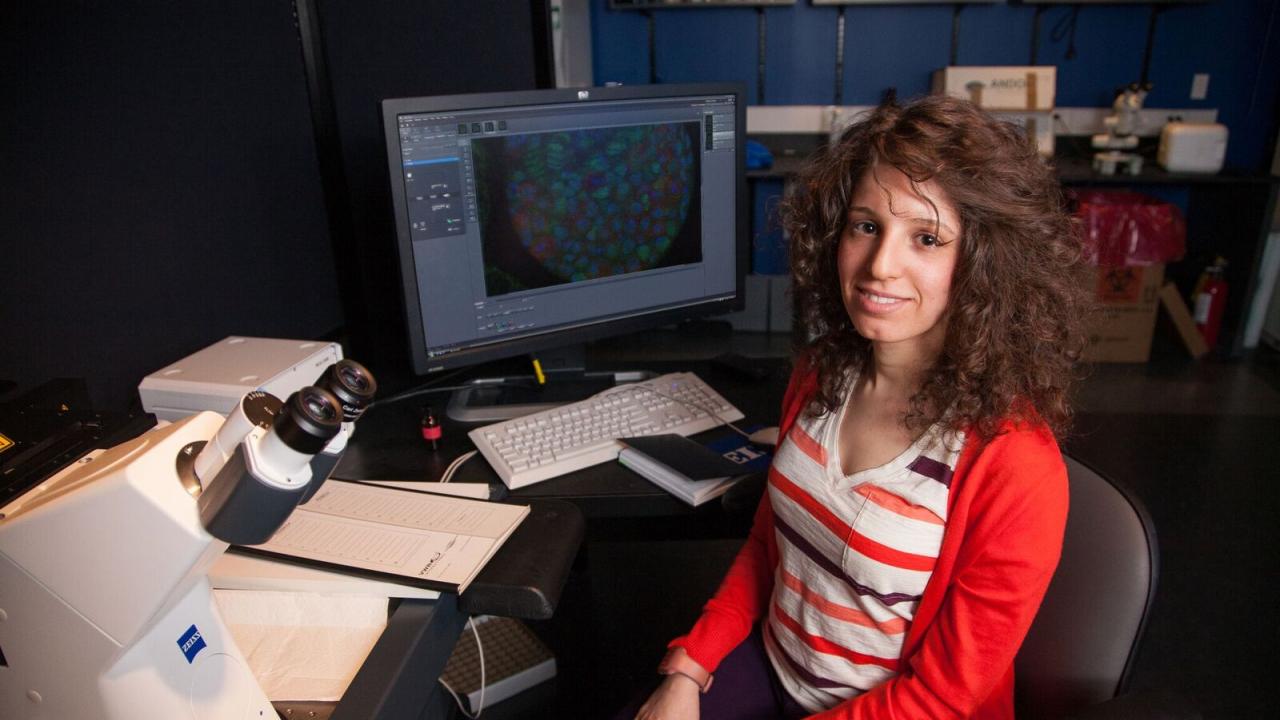
Didem Sarikaya Awarded UC President’s Postdoctoral Fellowship
When Didem Sarikaya joined UC Davis in 2015 as a postdoctoral researcher, she committed to ensuring women and minorities were represented in the life sciences. An organizing member of Women in Life Sciences at Davis and co-chair of the career development subcommittee for the Genetics Society of America, she’s made a focused effort to create opportunities for diversity.
“About half of all Ph.D. students in the life sciences are women, but around 30 percent of faculty are female,” said Sarikaya, “The translation from Ph.D. to faculty is a really big gap in science, and the drop off rate is even worse for underrepresented backgrounds.”
For her work, Sarikaya received the University of California’s President’s Postdoctoral Fellowship, which is meant to encourage women and minority Ph.D. recipients to pursue academic careers at the University of California.
“I feel very honored and really aligned with the goals of the fellowship,” said Sarikaya. “It feeds my soul to do this work. It makes me happier and a better person.”
Sarikaya plans to use resources from the two-year fellowship to tackle issues related to departmental culture and career training to improve retention of women and underrepresented scientists in academia. Born in Canada to Turkish parents, she spent her childhood in Canada, Turkey, Japan and the United States.
In the upcoming year, she’ll work to create workshops for the UC Davis Graduate Student Association and UC faculty members that provide an intersectional perspective on career development. Sarikaya hopes to raise awareness and provide resources to help faculty better understand the challenges underrepresented students may face when making career decisions.
Signaling pathways, a key to understanding disease
Sarikaya holds appointments in the labs of Professor David Begun, Department of Evolution and Ecology, and Assistant Professor John Albeck, Department of Molecular and Cellular Biology. She studies how cell signaling pathways transmit information. She is interested in how subtle changes in pathways can affect the overall health and evolution of an organism.
Scientists know genetic mutations underlie the development of many diseases, like congenital disorders and cancer. In the lab, they can figure out the molecular mechanisms of how certain diseases develop by switching off genes or specific cell signaling pathways and studying the results.
“Unfortunately, this method doesn’t often reflect adult-onset diseases, such as diabetes and heart disease, which are usually very complex genetically,” said Sarikaya. “With such diseases, it’s not that your genes don’t work, it’s that they just might work differently.”
Sarikaya is interested in the natural variation of insulin signaling genes. Using fruit flies as a model organism, she studies how small changes, which can increase or decrease the pathway's activity, affect health.
Inspiring science through art
Though her scientific passion runs deep, Sarikaya is also an artist, and her preferred medium is watercolors. After completing a Ph.D., she took four months off to study art on the lush and scenic Hawaiian island of Maui.

“It was a really great moment in my life where I got to reflect on all the different facets of my life and think about why I like to do to science,” she said.
In the past, she’s blended her love for art and science by using painting as a tool to teach children about insect morphology. Sarikaya said she hopes to continue this work in the future and to spread her passion for science to the community. She plans to use genetic cell data imagery to encourage arts-focused students to create multi-media art pieces on personalized genomics.
Sarikaya earned a Ph.D. in Organismic and Evolutionary Biology at Harvard University, an M.S. in Human Genetics at McGill University and a B.S. in Genetics and Biotechnology at the University of Toronto.
